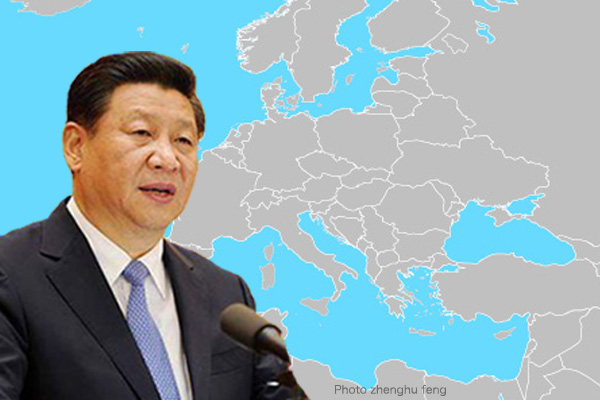After being criticized for being unaware of Chinese threats, Europe is wakening up at last.
Europe joined Japan and the United States to warn against China as shown by a joint statement of foreign ministers from the Group of Seven industrial democracies that touched on the Taiwan situation where China’s military pressure has been growing. Subsequently, France, recognizing the strategic importance of the Indo-Pacific region, conducted a joint island defense military exercise with Japan and the U.S. The United Kingdom, seeking to reemerge as a global Britain following the Brexit, announced a plan to send its state-of-the-art aircraft carrier Queen Elizabeth to the Far East. Germany and Japan held the first-ever “2 plus 2” meeting of their foreign and defense ministers in April, sharing a sense of crisis regarding China. Germany also plans to send a frigate to the Indo-Pacific region. We should welcome major European countries’ participation in deterrence against China.
China drives a wedge into Europe through BRI
In fact, however, China has taken advantage of its Belt and Road Initiative to substantially expand its influence in Europe. It has developed the so-called 17 plus 1 framework with Central and Eastern Europe and the Balkan countries on the periphery of Europe to drive a wedge into the European continent. A particular matter of concern is that the Balkan countries, being called as the inner courtyard of the European Union, have tilted towards China.
In this context, it has been frequently reported that Greece’s Piraeus Port has effectively been put under Chinese control. Serbia has deepened its relationship with China under President Aleksandar Vucic who has called China “a friend indeed.” Two years ago, Serbia invited the Chinese People’s Armed Police Force to conduct a joint exercise, according to the Associated Press. Serbia has also become the first European country to purchase Chinese attack drones. Deepening concern over Serbia’s honeymoon relationship with China, the European Parliament adopted a resolution in February calling on Serbia to strengthen its legal compliance standards for Chinese business activities.
Meanwhile, Hungary has allowed China’s Fudan University to open a campus in the capital city of Budapest and receive Hungarian government subsidies. It has become the first EU member to accept a Chinese university. Hungarian government of Prime Minister Viktor Orban has been branded as a bad boy of the EU because of its authoritarian rule, being affinitive to China.
Nevertheless, the 17 plus 1 group might have been losing momentum China had wanted. In an online summit of the group where Chinese President Xi Jinping was present, top leaders from six countries including three Baltic countries and a Balkan state of Bulgaria were absent.
Green Party is tough against China
Another point to note is that we must not ignore a Green element in analyzing Europe’s future China policy.
After this autumn’s German general election that will end the long reign of Chancellor Angela Merkel, the pro-environment Green Party may join a coalition government. The Greens has been tough against China’s human rights abuse. While the European Parliament has delayed its approval on the EU-China comprehensive investment agreement due to the EU’s exchange of sanctions with China over Beijing’s Uyghur crackdown, the Greens is the only German political party that has persistently opposed the agreement. Europe should put aside minor differences for the greater good in addressing China issues. Cooperation with the Green Party would not be unproductive in this sense.
Nobuyuki Sato is a professor at Otemon University and former bureau chief in Washington, D.C. and correspondent in Berlin for the Jiji Press.


